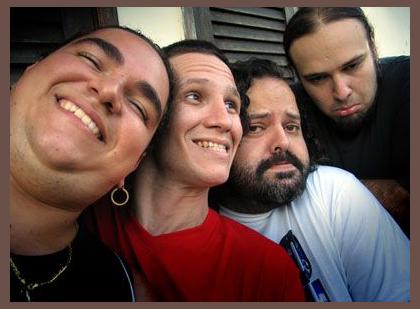 Os Phorras
Os Phorras
Os Phorras: The Controversial Music Band Behind the Infectious "Das Quantas"
Os Phorras, a Portuguese rock band that emerged in the early 1980s, made their mark on the music scene with their raw energy and provocative lyrics. Fronted by the enigmatic Fernando Alvim, the band's unique blend of rock, punk, and traditional Portuguese music resonated with a generation of disenchanted youth.
The Early Years
Formed in the industrial city of Setúbal, Os Phorras initially faced resistance from the establishment due to their rebellious and often vulgar lyrics. The band's name itself, meaning "The Killers" in Portuguese, reflected their rebellious spirit. Despite the challenges, they gained a cult following among those who saw their music as a voice for the voiceless.
Controversies and Censorship
Throughout their career, Os Phorras courted controversy with their inflammatory lyrics that tackled taboo subjects such as drugs, prostitution, and social inequality. Their songs were frequently banned from radio and television, and they faced legal challenges from conservative groups.
Discography and Notable Songs
Os Phorras released a series of critically acclaimed albums, including "A Última Bala" (1984), "O Último Beijo" (1986), and "O Anjo Cartomante" (1990). Their signature song, "Das Quantas," became an anthem for a generation of Portuguese youth, capturing the disillusionment and frustration of the era.
Members and Influences
The core members of Os Phorras were Fernando Alvim (vocals), Carlos "Zé" Carlos (guitar), José "Zé" Fernando (bass), and Mário "Zé" Marçal (drums). The band's sound was heavily influenced by early punk bands such as The Clash and The Sex Pistols, as well as traditional Portuguese folk music.
Later Years and Legacy
Despite their initial controversies, Os Phorras eventually gained mainstream acceptance and toured extensively throughout Europe. The band disbanded in the mid-1990s, but their music continues to be celebrated and remembered as a testament to a turbulent and transformative era in Portuguese history.
Os Phorras, a Portuguese rock band that emerged in the early 1980s, made their mark on the music scene with their raw energy and provocative lyrics. Fronted by the enigmatic Fernando Alvim, the band's unique blend of rock, punk, and traditional Portuguese music resonated with a generation of disenchanted youth.
The Early Years
Formed in the industrial city of Setúbal, Os Phorras initially faced resistance from the establishment due to their rebellious and often vulgar lyrics. The band's name itself, meaning "The Killers" in Portuguese, reflected their rebellious spirit. Despite the challenges, they gained a cult following among those who saw their music as a voice for the voiceless.
Controversies and Censorship
Throughout their career, Os Phorras courted controversy with their inflammatory lyrics that tackled taboo subjects such as drugs, prostitution, and social inequality. Their songs were frequently banned from radio and television, and they faced legal challenges from conservative groups.
Discography and Notable Songs
Os Phorras released a series of critically acclaimed albums, including "A Última Bala" (1984), "O Último Beijo" (1986), and "O Anjo Cartomante" (1990). Their signature song, "Das Quantas," became an anthem for a generation of Portuguese youth, capturing the disillusionment and frustration of the era.
Members and Influences
The core members of Os Phorras were Fernando Alvim (vocals), Carlos "Zé" Carlos (guitar), José "Zé" Fernando (bass), and Mário "Zé" Marçal (drums). The band's sound was heavily influenced by early punk bands such as The Clash and The Sex Pistols, as well as traditional Portuguese folk music.
Later Years and Legacy
Despite their initial controversies, Os Phorras eventually gained mainstream acceptance and toured extensively throughout Europe. The band disbanded in the mid-1990s, but their music continues to be celebrated and remembered as a testament to a turbulent and transformative era in Portuguese history.